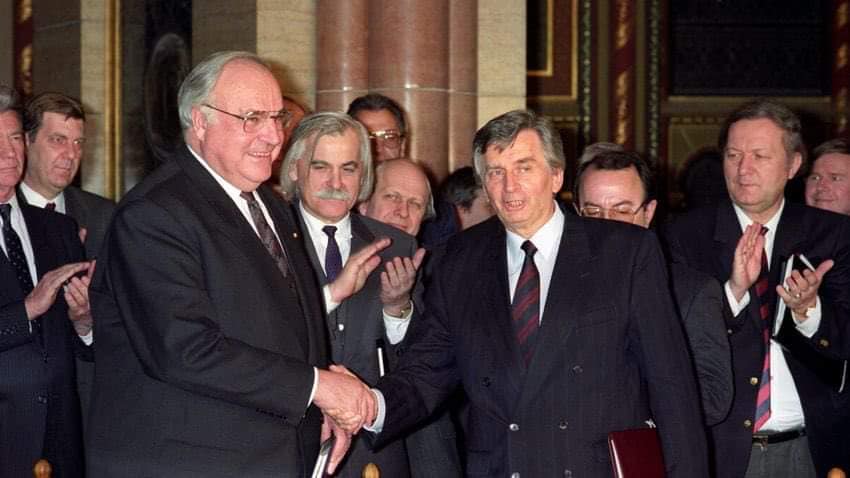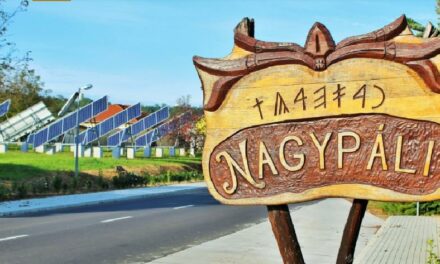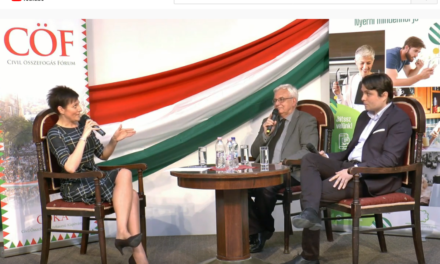In the light of what has happened so far, let's take a look at who managed the processes during the Hungarian regime change, who was relegated to the background, who was washed off the track, and to what extent was the Hungarian transition planned and how spontaneous?
Among the international actors, the most influential were undoubtedly the global financial elite and the Euro-Atlantic superpowers. The latter were primarily driven by the consideration - as I mentioned, without any moral or emotional considerations - that political forces come to power in Hungary in the first free elections who do not question their geopolitical influence in the region and in Hungary , nor in politics, neither in ideology, nor in economy, nor in culture. Being elected political leaders, they worked in glass gloves, apparently they did not use violence, they only indirectly tried to influence the opposition parties and later on the Antall government. (It was a somewhat naive manifestation of this when Helmut Kohl asked Antall to leave the former communist Gyula Horn , obviously not realizing that this request was a really amazing proposal for the democrats who respect the 1956 revolution as a saint volt.)
The global financial elite used much more powerful and even more aggressive means to achieve their goals. It is well known that Hungary (together with Poland) had a huge foreign debt stock, and getting rid of it was one of the basic conditions for economic consolidation in Hungary (just like after Trianon). There was a will and intention for this: Alfred Herrhausen , president of Deutsche Bank and also Kohl's chief economic advisor, developed a financial consolidation program for the two countries and the region, with particular regard to the management of foreign debt. His approach was not interest-based, but moral, starting from the fact that the West has a responsibility towards the countries that have been languishing under communism for forty years. He presented Herrhausen's plans to the Monetary Fund and the World Bank in the fall of 1989, but the fact is that Herrhausen was blown up in his car in Frankfurt in December 1989.
This put an end to the value-based approach, the global financial elite swept aside Herrhausen's ideas and started from the premise that Hungary's debt stock should not be rescheduled, and especially not released. Why? Because this is the best way to maintain Hungary's financial and thus political dependence, vulnerability, and its forced situation to privatize state and national assets, strategically important sectors, introduce restrictions, raise taxes, and allow without limits for the sake of debt repayment and crisis management into the country multi-companies and financial institutions and so on. It is true that György Soros – true to his habit – tried this kind of partisan action: he came up with the proposal that if the government hands over strategically important state-owned companies to Andrew Sarlós József Antall resisted this seemingly irresistible offer
Beyond that, however, is the fact that the global financial gurus have clearly informed the Antall government that debt restructuring cannot be discussed, nor should it even be raised, because it could be accompanied by serious financial sanctions, indirect interventions, and the collapse of the Hungarian financial and economic situation. (According to some rather non-judgmental opinions, even certain Masonic lodges took part in the correction of the government, so to speak.) In addition, the global network has also achieved that the people who are dear to them because they hold neoliberal and globalist views, but come into opposition The government had to make a special pact with SZDSZ.
From this point on, we can say that the first freely elected government was not completely free, but rather danced in knots. The global financial elite, never elected by anyone and accountable to no electorate, did not choose the means to achieve its goals. We can therefore say that if any group of forces really planned and managed the Hungarian regime change, it was precisely the global elite , whose intentions the Western powers did not oppose, with the exception of a few exceptions mentioned above, because all of this reflected their intentions as well.
Ferenc Kulin also comes to a similar conclusion when he explains that although he does not share Bertalan Pethő's position, according to which the 1989/1990 revolution was orchestrated by the secret services, it must be recognized that world political processes must play a significantly greater role in judging the failed Hungarian regime change. attribute to what the terms "external conditions" and "international background" may refer to. In addition, he refers István Horváth , in which the witness and participant Horváth explains that Power over the System ultimately overwrites the script of the actors of the historical experiment.
Author: Tamás Fricz, political scientist
(to be continued)
(Cover photo: Helmut Kohl and József Antall. Source: Facebook)












